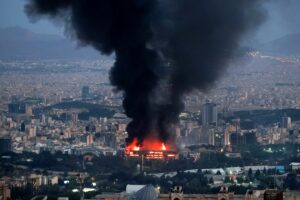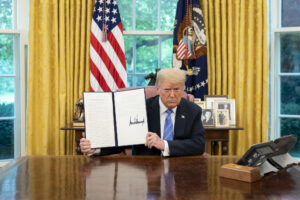There should have been cameras, microphones, a director. The fear of provocation and manipulation should not have prevented the 200 or so Russian journalists gathered abroad from debating in broad daylight, because the world would then have been able to see another Russia, the real one.
All of them were born or came of age after the communism, under the perestroika or in the Yeltsin years. Like all Russians under 40, they had grown up in debates, confrontation of ideas, and free expression, and for them, the present times are thus not a continuity but a total and sinister novelty. Coming from Russia itself or, mostly , from the countries where they found refuge and recreated their sites, they could all have been French, German, Italian or Polish. All of them were urban middle-class Europeans, of the generation and social background that will shape the post-Putin Russia and whose mobile phones and computers were not the only signs of their country’s break with the Soviet past.
Unlike the dissidents of the 1970s, these opposition figures know the world and are aware of the weaknesses, contradictions and diversities of democracies. Unlike the communist reformers of the 1980s, they are not linked to the regime in place, which they do not fight from within.
They are, in a word, the posthumous victory of Gorbachev, whose audacity gave birth to these democrats who had been able to set up, since the beginning of the century, solid and profitable press companies, now exiled but whose success is maintained on the screens of a borderless Internet. They have become men and women of the shadows, many of them women, far too unknown to Westerners who only hear the silence of a gagged Russia. It is true that this country is silent because the repression is now insane, but its resistance can be seen in the number of arrests, the severity of the sentences and, above all, the loyalty of the readers, listeners and viewers that this free press has retained.
The Russians are said to be in favour of their president and complicit in this war, at best indifferent and passive, at worst formatted by tsarist and then communist absolutism, but this meeting ten days ago said quite the opposite, even though this new diaspora will not suffer the same fate as the Russian emigration of the 1920s. Those who left a century ago never saw their homeland again but, unlike communism, Putinism will not last because it does not carry any of the false promises that had been able to seduce hundreds of millions of people around the world.
A simple aggregate of murder and pillage, this regime is only a moment of the chaos that follows every revolution, an atrocious comma in history from which Russia will soon emerge because no man is immortal and this one has precipitated his own end by plunging his country into a dead-end adventure.
Just as France was rebuilt after the war thanks to its newspapers and the programme of the Resistance, Russia today needs this free press to organise the debate on the policies it will have to pursue and the institutions it will have to equip itself with when the time for freedom comes. The parties and states of the 27 must help this press more than they are doing, because the possibility of stabilising our continent through cooperation between the European Union and post-Putin Russia is being determined in its columns. As a handful of Gaullists were France in 1940, these 200 are the Russia of tomorrow.



